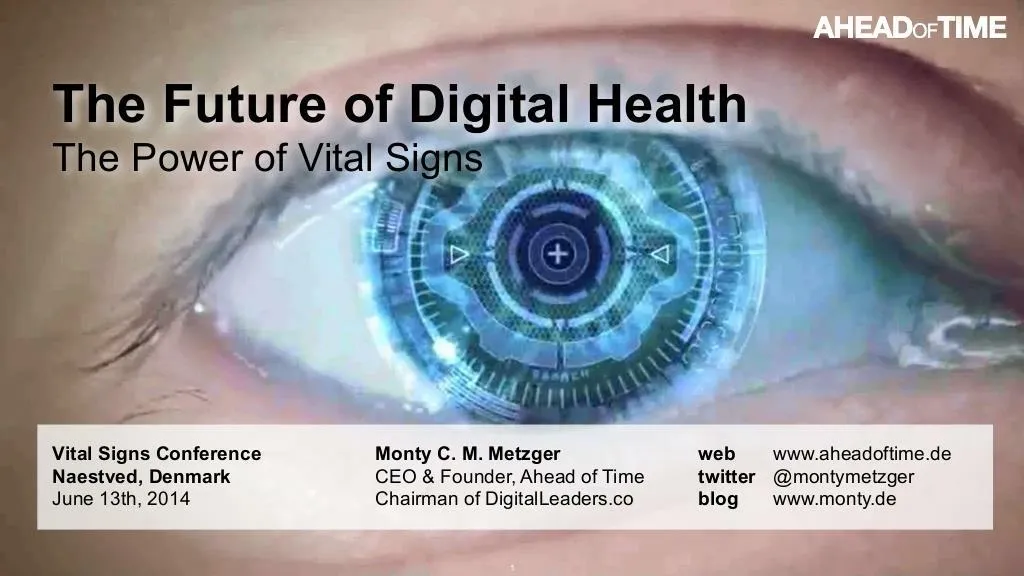

The Future of Digital Health: A Revolution in Healthcare
The healthcare industry is undergoing a significant transformation, driven by the rapid advancement of digital technologies. The fusion of healthcare and technology has given birth to digital health, a sector that is poised to revolutionize the way we approach healthcare. Digital health encompasses a broad range of innovations, from electronic health records and telemedicine to artificial intelligence, blockchain, and the Internet of Things (IoT). As we move forward, digital health is expected to play an increasingly important role in improving healthcare outcomes, reducing costs, and enhancing the patient experience.
Advancements in Telemedicine
Telemedicine, a key component of digital health, has been gaining traction in recent years. With the help of telemedicine, patients can consult with healthcare professionals remotely, eliminating the need for physical visits to hospitals or clinics. This not only improves access to healthcare services but also reduces waiting times and saves patients the hassle of traveling. Telemedicine is particularly beneficial for people living in rural areas or those with mobility issues.
The COVID-19 pandemic has accelerated the adoption of telemedicine, with many healthcare providers investing heavily in digital infrastructure to facilitate remote consultations. According to a report by Grand View Research, the global telemedicine market is projected to reach USD 130.5 billion by 2025, growing at a CAGR of 31.2% during the forecast period.
Artificial Intelligence in Healthcare
Artificial intelligence (AI) is another area that is transforming the healthcare industry. AI algorithms can analyze vast amounts of healthcare data, identifying patterns and insights that would be impossible for human clinicians to detect. This enables AI-powered systems to diagnose diseases more accurately, predict patient outcomes, and develop personalized treatment plans.
AI is also being used to improve patient engagement, with chatbots and virtual assistants helping patients to manage their health and communicate with healthcare providers. For instance, AI-powered chatbots can remind patients to take their medications, schedule appointments, and answer medical queries.
Blockchain in Healthcare
Blockchain technology, best known for its association with cryptocurrencies, is being explored for its potential applications in healthcare. Blockchain-based systems can ensure the secure and transparent exchange of healthcare data, empowering patients to control their own medical records. This can help to prevent data breaches, reduce administrative costs, and improve the accuracy of medical records.
Additionally, blockchain technology can facilitate the sharing of medical research data, enabling scientists to collaborate more effectively and accelerate the discovery of new treatments. A study by ResearchAndMarkets.com estimates that the global blockchain in healthcare market will reach USD 1.4 billion by 2024, growing at a CAGR of 61.3% from 2020 to 2024.
The Internet of Things (IoT) in Healthcare
The IoT is a network of devices connected via the internet, collecting and sharing data to improve healthcare outcomes. IoT devices, such as wearables and sensors, can monitor patients’ vital signs, track medication adherence, and detect early warning signs of disease.
The IoT is also being used to improve the management of chronic diseases, such as diabetes and heart disease. For example, IoT-enabled glucose monitors can track blood sugar levels and alert healthcare providers to potential complications. A report by MarketsandMarkets predicts that the global IoT in healthcare market will reach USD 136.8 billion by 2025, growing at a CAGR of 20.6% from 2020 to 2025.
Electronic Health Records (EHRs)
EHRs are digital versions of patients’ medical records, containing information on their medical history, diagnoses, medications, and test results. EHRs have improved the efficiency of healthcare systems, reducing administrative costs and minimizing the risk of medical errors.
EHRs are also enabling healthcare providers to make more informed decisions, with access to a comprehensive view of patients’ medical histories. According to a report by the Office of the National Coordinator for Health Information Technology (ONC), the adoption of EHRs has increased significantly in recent years, with over 95% of hospitals and 86% of office-based physicians using EHRs in 2020.
Challenges and Opportunities
While digital health holds tremendous promise, there are several challenges that need to be addressed. One of the key challenges is ensuring the security and privacy of healthcare data, as the risk of cyberattacks and data breaches is high. Healthcare providers must invest in robust cybersecurity measures to protect patient data and maintain trust.
Another challenge is the need for interoperability, or the ability of different healthcare systems to exchange data seamlessly. This requires standardization of EHR systems and data formats, enabling healthcare providers to share patient information efficiently.
Despite these challenges, the future of digital health looks bright. The increasing adoption of digital technologies is expected to drive down healthcare costs, improve healthcare outcomes, and enhance the patient experience. As the healthcare industry continues to evolve, digital health will play an increasingly important role in shaping the future of healthcare.
Conclusion
The future of digital health is exciting and promising, with numerous innovations transforming the healthcare industry. From telemedicine and AI to blockchain and the IoT, digital technologies are improving healthcare outcomes, reducing costs, and enhancing the patient experience. While there are challenges to be addressed, the opportunities presented by digital health are vast and compelling.
As we move forward, it is essential that healthcare providers, policymakers, and technology companies collaborate to harness the full potential of digital health. By doing so, we can create a healthcare system that is more efficient, effective, and patient-centric – a system that truly puts patients at the heart of care.




